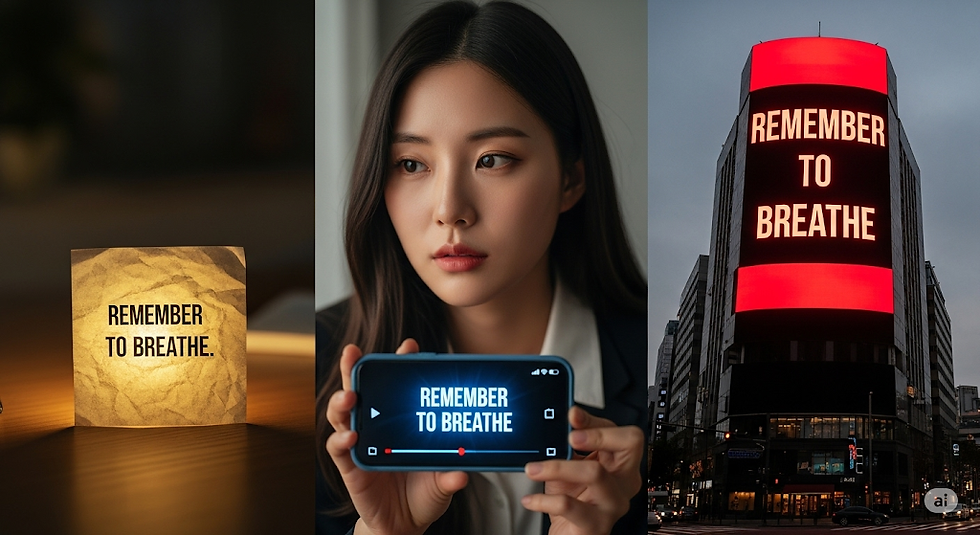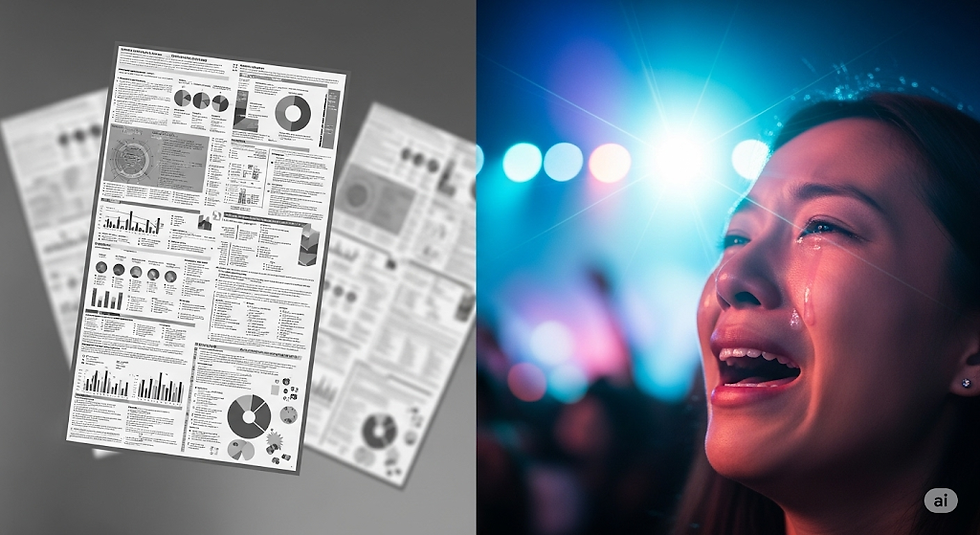5 Things K-Pop Demon Hunters Teaches Us About Digital Marketing In 2025
- Kel Fabie
- Aug 22, 2025
- 3 min read
If you're anything like us, you've probably watched K-Pop Demon Hunters… about a hundred times by now. And if you're really like us, the first time you heard the title, you probably squinted at your screen, wondering what the hype was about.
Yet here we are, watching it close in on Red Notice as the most streamed original film on Netflix of all time.
It might feel like it came out of nowhere, but the signs were there. Even if no one could have predicted just how massive it would get, K-Pop Demon Hunters made five smart choices that helped it go viral, turning it into this worldwide hit that it is today.
5. Drop culture as a driver for FOMO

The steady drip of teasers, countdowns, and concept drops didn't just build hype, it made K-Pop Demon Hunters feel like a can't-miss event. It borrowed directly from the K-pop industry playbook, where every comeback is an orchestrated spectacle.
Here’s the move: don’t just release content, launch it!
Build anticipation. Set dates. Create moments. If people sense something big is about to happen, they’ll show up just to be part of it.
4. Lore-building works, even outside of fiction.

K-Pop Demon Hunters didn’t explain everything. It just dropped us into a fully formed world with rules, history, and weight. And it worked, because people love discovering depth.
That kind of world-building isn’t just for fantasy. It works for brands too.
A strong brand needs more than a product lineup. It needs a point of view, a reason for existing, and a story people want to be part of. It’s not just your product list, it’s your brand’s bucket list. What are you here to do, and why should anyone care?
3. The medium is still the message.

If you've ever encountered this saying, you’re probably still trying to figure out what it means, or you took up Communication Arts in college. But even if Marshall MacLuhan coined this expression way back in 1964, it still holds true in 2025.
K-Pop Demon Hunters didn’t just borrow from idol culture, it fully leaned into it. From vertical previews to TikTok-ready soundbites, everything was built for the platforms where its audience actually lives. The campaign didn’t adapt content to each medium: it made content native to each one.
2. Emotion trumps information.

Plenty of internet rage-baiters already know this, but unlike them, you can take a better lesson away from realizing that emotion always outpaces information, especially on the internet.
K-Pop Demon Hunters proves the point. The title sounds every bit as absurd as Teenage Mutant Ninja Turtles once did. And yet, both tap into something deeper: identity, struggle, found family, and yes, comfort food.
Don’t just say your car is fast. Make us feel the relief of getting there quicker. Don’t sell the what: connect through the why.
1. Marketing should feel like discovery.

K-Pop Demon Hunters may have been backed by a marketing machine, but it didn’t feel like it. It didn’t scream for attention. Instead, it let people stumble onto it, get curious, and claim it. That kind of marketing is, in a word, Golden.
That’s the sweet spot. The best marketing doesn’t feel like a pitch. It feels like something the audience found for themselves. It lives in their feed, in their group chats, in their head, and all because they chose to let it in.
The Wrap-up
In the end, K-Pop Demon Hunters is lightning in a bottle. But even with all its star power, there are real lessons digital marketers can take from how it connected—and that’s not just preaching to the choir.
At 14:59, we may not be your idol, but we can be the agency you rely on. Give us a call, let’s talk digital marketing, and we’ll show you how it’s done, done, done.



Comments